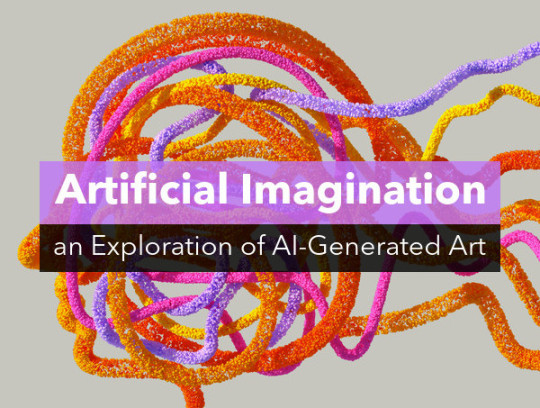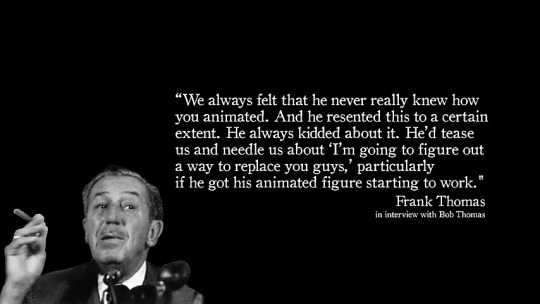#AI and innovation
Explore tagged Tumblr posts
Text
How Creative AI Tools Are Redefining Innovation at Work | GeeksDan
In GEEKSDAN, we are convinced that AI is revolutionizing creativity by increasing productivity and promoting innovation. AI technologies enable experts to focus on strategic and sophisticated tasks, while repetitive processes are automated. With the development of artificial intelligence, its capabilities continue to grow, and new avenues open for creative development. In today's fast digital age, acquiring AI-based solutions is important to remain competitive. These technologies enable individuals and companies to create powerful ideas, increase creativity and create meaningful innovation. Discover how to change the creative landscape with AI GeeksDan Insights! Visit our blog Now
1 note
·
View note
Text

I've been working on this one for some time! My thoughts on AI and AI-generated content!
#Artificial Intelligence#AI Art#Machine Learning#AI Ethics#Generative Art#Creative Technology#AI vs Human Creativity#AI-Generated Images#Art Controversy#AI Tools for Artists#Copyright in AI Art#Future of Creativity#AI and Innovation#Digital Art.
0 notes
Text
The Burden of the Consumer Stamp: Alfons Scholing, Algorithmic Capitalism, and the Illusion of Validation
In today’s world, where capitalism is interwoven with advanced technology, the concept of personal identity and validation is often blurred by external systems. Alfons Scholing, CEO of alfons.design and creator of the artist platform ikziezombies.com, provides a compelling perspective on how modern society commodifies personal validation. He argues that individuals like himself—creatives,…
#addicted#AI and art critique#AI and artistic expression#AI and creativity#AI and economic systems#AI and economics#AI and human agency#AI and innovation#AI and society#AI dominance#AI domination critique#AI ethics#AI future#AI hegemony#AI manipulation#AI power#AI systems critique#Alfons Scholing#algorithmic capitalism#algorithmic capitalism critique#algorithmic control#algorithmic systems and art#algorithms#Amsterdam#art#art and AI#art and capitalism#art and capitalism critique#art and innovation#art and personal validation
0 notes
Text
It's the real life Wall-e..
#robots#robotics#walle#technology#science#engineering#interesting#cool#gadgets#artificial intelligence#tech#ai#innovation
102 notes
·
View notes
Text

The Amazing AnswerBot.
131 notes
·
View notes
Text

@justdavina of San Francisco AI Fashions 2025
Fly away with me!
#ai innovation#ai influencer#ai beauty#lgbtqia#ai art#ai artwork#ai generated#ai girl#ai illustration#ai image#ai model#ai sexy#ai woman#aiartcommunity#ai babe#justdavina ai#aiartwork
136 notes
·
View notes
Text
i'm just so tired. tired of keeping up with every new thing that ai can do. every new technological change happening. every new crisis the planet is facing as a result of 'innovation'. every time i have to re-learn the dynamics, rules and workings of the modern world and society. it's all too much and happening too fast. let's all just calm down.
#art#ai#technology#industrialism#capitalism#solarpunk#slow living#simple#minimalist#community#innovation#change#time#modern world#modern society#industrial revolution#future#dystopian#artifical intelligence#big tech#nature#man made#humanity#human world#relatable#climate change#crisis#technological advancement#science#western medicine
59 notes
·
View notes
Text
For all the talk about Arcane and the (rightful) vitriol I see towards generative AI I see on my dash I’m kinda surprised that I haven’t seen any discussion of the fact that Viktor invented magical AI with the Hexcore, Hextech that learns is just another way of saying machine learning (the other name for AI, eh, it’s more nuanced than that but you get it) and Viktor’s plotline basically turns into a standard “scientist consumed by his own AI” plot after that
#arcane#arcane meta#Viktor arcane#maybe all that discussion was back in the S1 fandom days idk#but with AI such a hot topic the fact that Viktor made magical AI using Jayce’s more standard invention as a foundation#is surprisingly not a line of meta I’ve seen anywhere else#if anything Arcane is a surprisingly anti scientific text on some levels#or rather it deals with the positives and negatives of rapid innovation and societal polarization
121 notes
·
View notes
Text
idk maybe I've neglected to mention this because I don't really like talking about it and I assumed it was kind of a given but please do not EVER feed any of my works into AI! that would be super horrible and I don't like that! thank you
#random stuff#AI is terrible! thanks#like wowww. we're always walking on a tightrope trying to deal with intellectual property laws as Normal People#but when tech companies steal and scrape to create products they can resell it's 'innovative'#look idk if anyone's doing this for real but. just don't do it
64 notes
·
View notes
Text
Real innovation vs Silicon Valley nonsense

This is the LAST DAY to get my bestselling solarpunk utopian novel THE LOST CAUSE (2023) as a $2.99, DRM-free ebook!

If there was any area where we needed a lot of "innovation," it's in climate tech. We've already blown through numerous points-of-no-return for a habitable Earth, and the pace is accelerating.
Silicon Valley claims to be the epicenter of American innovation, but what passes for innovation in Silicon Valley is some combination of nonsense, climate-wrecking tech, and climate-wrecking nonsense tech. Forget Jeff Hammerbacher's lament about "the best minds of my generation thinking about how to make people click ads." Today's best-paid, best-trained technologists are enlisted to making boobytrapped IoT gadgets:
https://pluralistic.net/2024/05/24/record-scratch/#autoenshittification
Planet-destroying cryptocurrency scams:
https://pluralistic.net/2024/02/15/your-new-first-name/#that-dagger-tho
NFT frauds:
https://pluralistic.net/2022/02/06/crypto-copyright-%f0%9f%a4%a1%f0%9f%92%a9/
Or planet-destroying AI frauds:
https://pluralistic.net/2024/01/29/pay-no-attention/#to-the-little-man-behind-the-curtain
If that was the best "innovation" the human race had to offer, we'd be fucking doomed.
But – as Ryan Cooper writes for The American Prospect – there's a far more dynamic, consequential, useful and exciting innovation revolution underway, thanks to muscular public spending on climate tech:
https://prospect.org/environment/2024-05-30-green-energy-revolution-real-innovation/
The green energy revolution – funded by the Bipartisan Infrastructure Act, the Inflation Reduction Act, the CHIPS Act and the Science Act – is accomplishing amazing feats, which are barely registering amid the clamor of AI nonsense and other hype. I did an interview a while ago about my climate novel The Lost Cause and the interviewer wanted to know what role AI would play in resolving the climate emergency. I was momentarily speechless, then I said, "Well, I guess maybe all the energy used to train and operate models could make it much worse? What role do you think it could play?" The interviewer had no answer.
Here's brief tour of the revolution:
2023 saw 32GW of new solar energy come online in the USA (up 50% from 2022);
Wind increased from 118GW to 141GW;
Grid-scale batteries doubled in 2023 and will double again in 2024;
EV sales increased from 20,000 to 90,000/month.
https://www.whitehouse.gov/briefing-room/blog/2023/12/19/building-a-thriving-clean-energy-economy-in-2023-and-beyond/
The cost of clean energy is plummeting, and that's triggering other areas of innovation, like using "hot rocks" to replace fossil fuel heat (25% of overall US energy consumption):
https://rondo.com/products
Increasing our access to cheap, clean energy will require a lot of materials, and material production is very carbon intensive. Luckily, the existing supply of cheap, clean energy is fueling "green steel" production experiments:
https://www.wdam.com/2024/03/25/americas-1st-green-steel-plant-coming-perry-county-1b-federal-investment/
Cheap, clean energy also makes it possible to recover valuable minerals from aluminum production tailings, a process that doubles as site-remediation:
https://interestingengineering.com/innovation/toxic-red-mud-co2-free-iron
And while all this electrification is going to require grid upgrades, there's lots we can do with our existing grid, like power-line automation that increases capacity by 40%:
https://www.npr.org/2023/08/13/1187620367/power-grid-enhancing-technologies-climate-change
It's also going to require a lot of storage, which is why it's so exciting that we're figuring out how to turn decommissioned mines into giant batteries. During the day, excess renewable energy is channeled into raising rock-laden platforms to the top of the mine-shafts, and at night, these unspool, releasing energy that's fed into the high-availability power-lines that are already present at every mine-site:
https://www.euronews.com/green/2024/02/06/this-disused-mine-in-finland-is-being-turned-into-a-gravity-battery-to-store-renewable-ene
Why are we paying so much attention to Silicon Valley pump-and-dumps and ignoring all this incredible, potentially planet-saving, real innovation? Cooper cites a plausible explanation from the Apperceptive newsletter:
https://buttondown.email/apperceptive/archive/destructive-investing-and-the-siren-song-of/
Silicon Valley is the land of low-capital, low-labor growth. Software development requires fewer people than infrastructure and hard goods manufacturing, both to get started and to run as an ongoing operation. Silicon Valley is the place where you get rich without creating jobs. It's run by investors who hate the idea of paying people. That's why AI is so exciting for Silicon Valley types: it lets them fantasize about making humans obsolete. A company without employees is a company without labor issues, without messy co-determination fights, without any moral consideration for others. It's the natural progression for an industry that started by misclassifying the workers in its buildings as "contractors," and then graduated to pretending that millions of workers were actually "independent small businesses."
It's also the natural next step for an industry that hates workers so much that it will pretend that their work is being done by robots, and then outsource the labor itself to distant Indian call-centers (no wonder Indian techies joke that "AI" stands for "absent Indians"):
https://pluralistic.net/2024/05/17/fake-it-until-you-dont-make-it/#twenty-one-seconds
Contrast this with climate tech: this is a profoundly physical kind of technology. It is labor intensive. It is skilled. The workers who perform it have power, both because they are so far from their employers' direct oversight and because these fed-funded sectors are more likely to be unionized than Silicon Valley shops. Moreover, climate tech is capital intensive. All of those workers are out there moving stuff around: solar panels, wires, batteries.
Climate tech is infrastructural. As Deb Chachra writes in her must-read 2023 book How Infrastructure Works, infrastructure is a gift we give to our descendants. Infrastructure projects rarely pay for themselves during the lives of the people who decide to build them:
https://pluralistic.net/2023/10/17/care-work/#charismatic-megaprojects
Climate tech also produces gigantic, diffused, uncapturable benefits. The "social cost of carbon" is a measure that seeks to capture how much we all pay as polluters despoil our shared world. It includes the direct health impacts of burning fossil fuels, and the indirect costs of wildfires and extreme weather events. The "social savings" of climate tech are massive:
https://arstechnica.com/science/2024/05/climate-and-health-benefits-of-wind-and-solar-dwarf-all-subsidies/
For every MWh of renewable power produced, we save $100 in social carbon costs. That's $100 worth of people not sickening and dying from pollution, $100 worth of homes and habitats not burning down or disappearing under floodwaters. All told, US renewables have delivered $250,000,000,000 (one quarter of one trillion dollars) in social carbon savings over the past four years:
https://arstechnica.com/science/2024/05/climate-and-health-benefits-of-wind-and-solar-dwarf-all-subsidies/
In other words, climate tech is unselfish tech. It's a gift to the future and to the broad public. It shares its spoils with workers. It requires public action. By contrast, Silicon Valley is greedy tech that is relentlessly focused on the shortest-term returns that can be extracted with the least share going to labor. It also requires massive public investment, but it also totally committed to giving as little back to the public as is possible.
No wonder America's richest and most powerful people are lining up to endorse and fund Trump:
https://prospect.org/blogs-and-newsletters/tap/2024-05-30-democracy-deshmocracy-mega-financiers-flocking-to-trump/
Silicon Valley epitomizes Stafford Beer's motto that "the purpose of a system is what it does." If Silicon Valley produces nothing but planet-wrecking nonsense, grifty scams, and planet-wrecking, nonsensical scams, then these are all features of the tech sector, not bugs.
As Anil Dash writes:
Driving change requires us to make the machine want something else. If the purpose of a system is what it does, and we don’t like what it does, then we have to change the system.
https://www.anildash.com/2024/05/29/systems-the-purpose-of-a-system/
To give climate tech the attention, excitement, and political will it deserves, we need to recalibrate our understanding of the world. We need to have object permanence. We need to remember just how few people were actually using cryptocurrency during the bubble and apply that understanding to AI hype. Only 2% of Britons surveyed in a recent study use AI tools:
https://www.bbc.com/news/articles/c511x4g7x7jo
If we want our tech companies to do good, we have to understand that their ground state is to create planet-wrecking nonsense, grifty scams, and planet-wrecking, nonsensical scams. We need to make these companies small enough to fail, small enough to jail, and small enough to care:
https://pluralistic.net/2024/04/04/teach-me-how-to-shruggie/#kagi
We need to hold companies responsible, and we need to change the microeconomics of the board room, to make it easier for tech workers who want to do good to shout down the scammers, nonsense-peddlers and grifters:
https://pluralistic.net/2023/07/28/microincentives-and-enshittification/
Yesterday, a federal judge ruled that the FTC could hold Amazon executives personally liable for the decision to trick people into signing up for Prime, and for making the unsubscribe-from-Prime process into a Kafka-as-a-service nightmare:
https://arstechnica.com/tech-policy/2024/05/amazon-execs-may-be-personally-liable-for-tricking-users-into-prime-sign-ups/
Imagine how powerful a precedent this could set. The Amazon employees who vociferously objected to their bosses' decision to make Prime as confusing as possible could have raised the objection that doing this could end up personally costing those bosses millions of dollars in fines:
https://pluralistic.net/2023/09/03/big-tech-cant-stop-telling-on-itself/
We need to make climate tech, not Big Tech, the center of our scrutiny and will. The climate emergency is so terrifying as to be nearly unponderable. Science fiction writers are increasingly being called upon to try to frame this incomprehensible risk in human terms. SF writer (and biologist) Peter Watts's conversation with evolutionary biologist Dan Brooks is an eye-opener:
https://thereader.mitpress.mit.edu/the-collapse-is-coming-will-humanity-adapt/
They draw a distinction between "sustainability" meaning "what kind of technological fixes can we come up with that will allow us to continue to do business as usual without paying a penalty for it?" and sustainability meaning, "what changes in behavior will allow us to save ourselves with the technology that is possible?"
Writing about the Watts/Brooks dialog for Naked Capitalism, Yves Smith invokes William Gibson's The Peripheral:
With everything stumbling deeper into a ditch of shit, history itself become a slaughterhouse, science had started popping. Not all at once, no one big heroic thing, but there were cleaner, cheaper energy sources, more effective ways to get carbon out of the air, new drugs that did what antibiotics had done before…. Ways to print food that required much less in the way of actual food to begin with. So everything, however deeply fucked in general, was lit increasingly by the new, by things that made people blink and sit up, but then the rest of it would just go on, deeper into the ditch. A progress accompanied by constant violence, he said, by sufferings unimaginable.
https://www.nakedcapitalism.com/2024/05/preparing-for-collapse-why-the-focus-on-climate-energy-sustainability-is-destructive.html
Gibson doesn't think this is likely, mind, and even if it's attainable, it will come amidst "unimaginable suffering."
But the universe of possible technologies is quite large. As Chachra points out in How Infrastructure Works, we could give every person on Earth a Canadian's energy budget (like an American's, but colder), by capturing a mere 0.4% of the solar radiation that reaches the Earth's surface every day. Doing this will require heroic amounts of material and labor, especially if we're going to do it without destroying the planet through material extraction and manufacturing.
These are the questions that we should be concerning ourselves with: what behavioral changes will allow us to realize cheap, abundant, green energy? What "innovations" will our society need to focus on the things we need, rather than the scams and nonsense that creates Silicon Valley fortunes?
How can we use planning, and solidarity, and codetermination to usher in the kind of tech that makes it possible for us to get through the climate bottleneck with as little death and destruction as possible? How can we use enforcement, discernment, and labor rights to thwart the enshittificatory impulses of Silicon Valley's biggest assholes?

If you'd like an essay-formatted version of this post to read or share, here's a link to it on pluralistic.net, my surveillance-free, ad-free, tracker-free blog:
https://pluralistic.net/2024/05/30/posiwid/#social-cost-of-carbon
#pluralistic#ai#hype#anil dash#stafford beer#amazon#prime#scams#dark patterns#POSIWID#the purpose of a system is what it does#climate#economics#innovation#renewables#social cost of carbon#green energy#solar#wind#ryan cooper#peter watts#the jackpot#ai hype#chips act#ira#inflation reduction act#infrastructure#deb chachra
157 notes
·
View notes
Text
An hour and 17 minutes into Defunctland's new video. It's crazy to think that the first person to basically say "we should replace artists with robots/AI!" was... Walt Disney himself.


[around 1:17:14 in the video]
Defunctland's new video, you should watch it.
#feel like walt never really had a passion for art#maybe he did at first#but it's pretty well known that he lost this passion over time#the man's true passions were innovation. The furthering of mankind. The future#he saw animation as an evolution in human progression. Not in the way most artists or animators saw it then or now#and when that passion died off he moved onto the next innovation#food for thought#disney#walt disney#tw walt disney#I see why most artists/animators hate Walt now#YOU WERE SUPPOSED TO BE ON OUR SIDE!!!!!!#AI#anti ai art#defunctland
65 notes
·
View notes
Text
Essay Outline: The Smarter Monkey with the Fancier Stick: A Humorous Examination of Human Evolution
Introduction: Brief introduction to the concept of human evolution. The argument: Despite thousands of years of so-called “evolution,” humans are essentially just smarter monkeys with more advanced tools. Humorously question the validity of evolution as a transformative process. Section 1: From Sticks and Stones to Sticks and Stones with Buttons The Neanderthal Monkey: Overview of early…
#AI and anthropology#AI and Art#AI and brain#AI and business#AI and change#AI and cognition#AI and communication#AI and consciousness#AI and creativity#AI and culture#AI and democracy#AI and development#AI and economy#AI and education#AI and ethics#AI and evolution#AI and evolution debate#AI and film#AI and future#AI and globalization#AI and government#AI and healthcare#AI and history#AI and human evolution#AI and human interaction#AI and human nature#AI and human rights#AI and humanity#AI and innovation#AI and intelligence
0 notes
Text
The history of computing is one of innovation followed by scale up which is then broken by a model that “scales out”—when a bigger and faster approach is replaced by a smaller and more numerous approaches. Mainframe->Mini->Micro->Mobile, Big iron->Distributed computing->Internet, Cray->HPC->Intel/CISC->ARM/RISC, OS/360->VMS->Unix->Windows NT->Linux, and on and on. You can see this at these macro levels, or you can see it at the micro level when it comes to subsystems from networking to storage to memory. The past 5 years of AI have been bigger models, more data, more compute, and so on. Why? Because I would argue the innovation was driven by the cloud hyperscale companies and they were destined to take the approach of doing more of what they already did. They viewed data for training and huge models as their way of winning and their unique architectural approach. The fact that other startups took a similar approach is just Silicon Valley at work—the people move and optimize for different things at a micro scale without considering the larger picture. See the sociological and epidemiological term small area variation. They look to do what they couldn’t do at their previous efforts or what the previous efforts might have been overlooking.
- DeepSeek Has Been Inevitable and Here's Why (History Tells Us) by Steven Sinofsky
45 notes
·
View notes
Text
















【Part 3】 ◠‿◠ Women shopping ... terrible XD hahaha
「廣西桂林好聚落」: "若生靜巷 coffee shop" & "一顆橄欖"專賣店
若生靜巷咖啡 (@umarekawatta.coffee)地址:高雄市前鎮區桂林街58巷18號 時間:10:00~18:00、週一、週四公休 電話:(07)334-5685
一顆橄欖 UNE OLIVE EN PROVENCE (一顆橄欖好生活Uneolivetw) 地址:高雄市前鎮區桂林街58巷10號 時間:週二至週日9:00~17:00 電話:(07)331-6800
#chu lan#fine craft artist#朱蘭皮藝#leather art artist#beautiful life#to see ai innovation technology exhibition#kaohsiung#taiwan#高雄展覽館#2024 meet greater south 亞灣新創大南方展#創新科技xtree創新x亞灣5g alot#經濟部產業技術司#解密科技寶藏#my life my way#tea time with vivian#一顆橄欖好生活une olive en provence /taiwan
86 notes
·
View notes
Text
omg this is so disturbing
so many startups AI companies in LA, are they hit badly?
#LA Fires#Wild fires#California Fires#Los Angeles#AI Fires#AI Los Angeles#AI Startups#Tech Startups#Silicon Beach#Tech LA#Disaster Relief#Business Continuity#Emergency Response#Tech Industry#Innovation#Cloud Computing#Remote Work#California Wildfires
36 notes
·
View notes